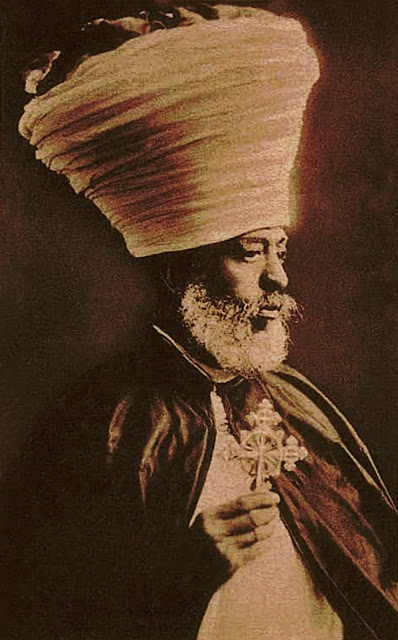ETHIOPIA – ÉTHIOPIE
Musica dell' / Music of Etiopia – Albatros – VPA 8230, recorded by Chet A. Wollner and Lin Lerner in 1973 (LP)
I’m delighted to present this reissue of a terrific Ethnic Folkways album on the Italian Albatros label, featuring rare recordings of various ethnic/cultural groups from southwestern and northern Ethiopia, including the Wollamo, Hanafa, Gernu, Tigray, Adjuran, Gidole, Falasha, Borana, Burgi and Konso peoples. These fluid and sensuous abstract sonorities, performed during collective rituals and daily activities, showcase enthralling, stately sounds with male and female vocals, flutes and panpipes, horns, krar lyres, masinKo, or masenqo single-stringed lutes, percussion, clapping and exclamations.
Je suis ravi de présenter cette réédition d'un formidable album Ethnic Folkways sur le label italien Albatros, avec des enregistrements rares de divers groupes ethniques/culturels provenant du sud-ouest et du nord de l'Éthiopie, notamment les peuples Wollamo, Hanafa, Gernu, Tigray, Adjuran, Gidole, Falasha, Borana, Burgi et Konso. Ces sonorités abstraites fluides et sensuelles, jouées lors de rituels collectifs ou d'activités quotidiennes, présentent des sons captivants et majestueux comprenant des voix masculines et féminines, diverses flûtes, des cors, des lyres krar, des vièles à archet monocorde masinKo, ou masenqo, des percussions, des battements de mains et des exclamations.
Wollamo people
A1 – Kammba drum solo by Malko Bokie;
A2 – Ten-foot-long woyisha bamboo cow horn;
Hanafa people
A3 – Faro;
Gernu people
A4 – Borquekka (ox song);
A5 – Ox song & chant;
Tigray people
A6 – Washint instrumental with three flute players;
A7 – Gojjam Endenesh (a place with plenty of honey) with krar lyres, masenqo single-stringed lutes and shephard’s flute;
Adjuran people
A8 – Formal introduction of a man to a woman;
Gidole people
B1a – Hanafa horn;
B1b – Filla flute;
B1c – Mira pan pipes;
B1d – Filla flute;
B1e – Ioiata horn;
B2 – Flute ensemble;
Falasha people
B3 – Sabbath service;
Borana people
B4 – Hermana (bringing the cattle to the water);
Burgi people
B5 – Siyawe (wedding song);
Konso people
B6 – Guretta (greeting song).
Our other Ethiopian music posts:
Azmari Music of the Amharas – Anthology AST 6000, 1967 here
Polyphonies des Dorzé – Le Chant du Monde, 1975 here
%20P.jpg)
%20P%2021%2038.jpg)
P.jpg)
P%204%2052.jpg)
P%20-9%2024.jpg)
%200%2029.jpg)


Beautiful! Thank You!!!
ReplyDeleteincredible! so much mystery in the music and surprises galore everywhere..where primitive and modernism meet! ....Expect a trance state/chemical reaction....
ReplyDeleteThanks!
ReplyDeleteAnd may I add, "What a hat!"
The Hanafa's faro sound somewhat like Inuit throat singing. I just love this type of question/answer, onomatopeic and 'breating' rites. I wonder if you know of any other cultures practicing it ?
ReplyDeleteI think that structure is called 'hoquet' actually.
DeleteAlso - sauf erreur - Tigreans are from North-East Ethiopia (what is today Eritrea and bordering regions), not from the South-West?
ReplyDeleteGood point Bertrand, although most of the recording here were collected in southwestern Ethiopia, a few (Tigrean music) were indeed recorded in the country’s north, as shown on the map, namely Gondar and Aksum (Axum), in Ethiopia proper, close to the Eritrean border. I corrected, thank you very much.
DeleteLike yourself Bertrand, I am particularly fascinated by collective African traditional music with “muddy tones,” added harmonics and pitches, etc. in call-response mode giving the music an otherworldly quality. Francis Bebey said African traditional music “suggests the supernatural.”
ReplyDeleteThese remarkable African sound textures are truly exciting and so thoroughly alive, prompting electronic music/ambient maestro Brian Eno to state that African music “unlocks the sound.”
Despite our modern profane and ‘rational’ mind-frame, I believe we have a deeply engrained subconscious longing for collective transcendent music and dancing. I like our friend goinsidemyhead’s earlier comment here: “incredible! so much mystery in the music and surprises galore everywhere …where primitive and modernism meet! .... Expect a trance state/chemical reaction....”
There are of course cultures of old – mostly Primal – on other continents using similar musical techniques.
Clearly a lot of tribal music has ritual or devotional sources (i.e. dhikr), but the Inuit throat singing I mentioned seems relatively secular: it's apparently a game (somewhat similar to 'je te tiens par la barbichette'). I'd be particularly keen to learn of other similar traditions, where improvised music is presented as competitive, with a winner and a loser.
DeleteInuit throat singing and rhythmic breathing is truly unique and I don’t know of any comparable musical tradition.
DeleteThank-you very much
ReplyDelete